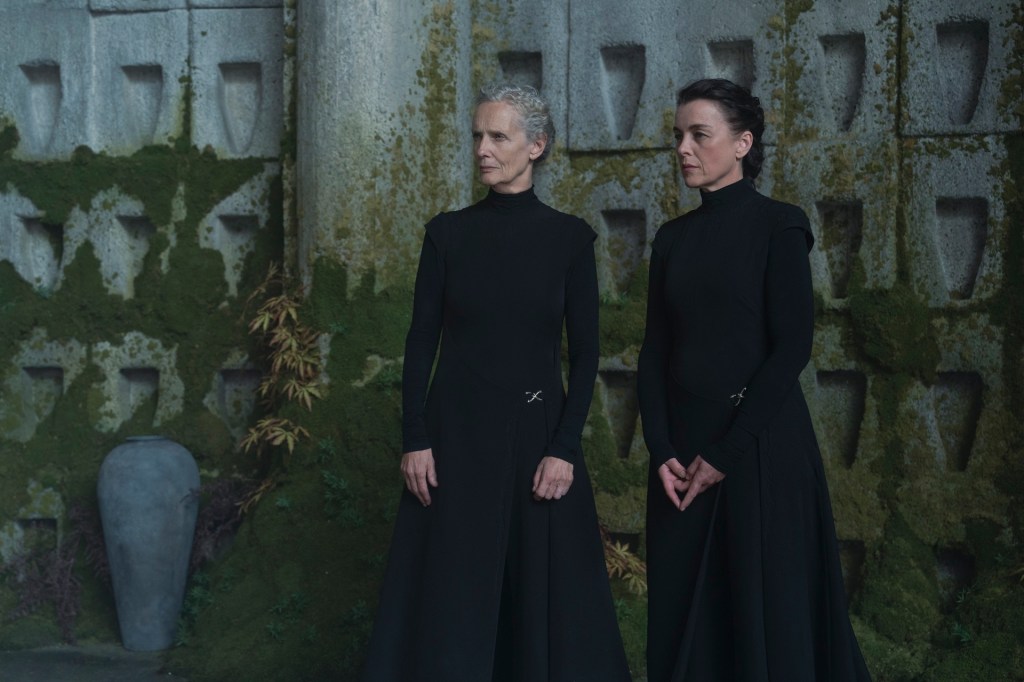Dune: Prophecy divides critics and fans as space-opera series arrives on HBO

Dune: Prophecy is out now on HBO. (HBO)
Dune: Prophecy is here – and so are the reviews – but does the TV adaptation of the space-opera franchise hold up to its cinematic cousins?
The show, which adapts the controversial prequel novel Sisterhood of Dune, by original author Frank Herbert’s son, Brian, aired in the US on Sunday (17 November).
The limited-series show is set more than 10,000 years before the events of the films and follows the origins of the Bene Gesserit, a sisterhood of influential sorcerers whose goal is to create the Kwisatz Haderach.
Starring Emily Watson, Olivia Williams, Mark Strong and Travis Fimmel, the series focuses on two sisters of the Harkonnen bloodline, Valya and Tula, who vow to establish a Bene Gesserit sect on their home world.
Much like the book, the series has, so far, received lukewarm reviews from critics and viewers alike, with a score hovering around 70 per cent on Rotten Tomatoes.

Variety critic Alison Herman, who noted that the show was “already in the works before Dune: Part One was even in theatres” said that the first episodes handled the ups and downs of adapting a franchise as huge as this “capably.”
However, it “palpably lacks the magic touch of cinematographer Greig Fraser,” who was involved in the films, as well as the “star power of Timothée Chalamet”, she added.
“But [Dune: Prophecy] exerts an advantage on the fronts television is already suited to, like bringing the many political factions of the sprawling Imperium to life.”
The Verge’s Charles Pulliam-Moore called the show a “slow and cerebral meditation on the power of patience” but warned that its tendency to pivot away from the core Dune texts might be “turn-offs for franchise purists”.
One particular grievance circulating online is the design of the Thinking Machines, an entity of artificial intelligences and living beings which enslaved humanity but were destroyed in the Butlerian Jihad.
Thinking machines from HBO's DUNE: Prophecy series. pic.twitter.com/1eytriZAim
— 𝐑. Å𝐥í | Secrets of Dune (@SecretsOfDune) November 15, 2024
The event was changed drastically in Brian Herbert’s novels, from a complex rejection of technological advance to an all-out war against technology.
Fans of the series took issue with the design of the Thinking Machines which were no longer the incorporated technological advances that humans came to rely on, as originally depicted by Frank Herbert.
“The danger isn’t [Terminator‘s] Skynet,” one disgruntled fan wrote. “It’s that you stop developing yourself as a human being because you have technology.”
Another wrote: “Dogs**t idea following Brian Herbert’s Butlerian Jihad because it’s just so wrong. The war wasn’t a literal war, it was a religious extermination of humans who relied on machines and the computers they used.”
The frustration was particularly reflected in GamesRader+’s review by Amy West, who felt the series “fell short”, explaining: “Dune: Prophecy, HBO’s take on Frank Herbert’s acclaimed sci-fi franchise, features the odd flicker of greatness, but ultimately gets weighed down with too many characters, overly complex world-building and dull sub-plots.”
Dune: Prophecy airs on HBO in the US and begins in the UK on Sky Atlantic on Monday (18 November) at 9pm.
Share your thoughts! Let us know in the comments below, and remember to keep the conversation respectful.
How did this story make you feel?

